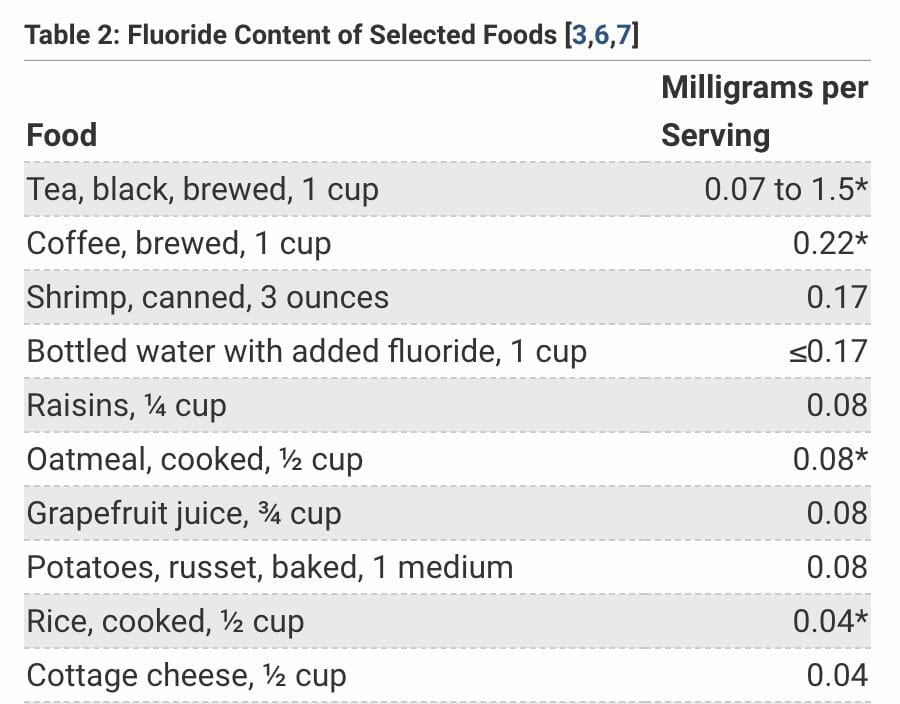“Hey, Dr. Monfredi. Do you have any tips on how to strengthen teeth?”
After I tell them that I’m just a glorified receptionist and that my wife, Dr. Monica Monfredi is our boss and owner, and most importantly, the actual dentist, I’ll typically ask the patient to hold on for a second while I grab someone more qualified to answer their question.
And the question above is one that we get quite a bit. Whether you’re working to prevent cavities, teach your young one great oral hygiene habits, or want to impress your friends who (unfortunately) visit other dental offices, knowing how to build and maintain strong healthy teeth is a cause we can all get behind.
While genetics do play a part in how strong your teeth are, they don’t have the only say (sorry – you can’t entirely blame your parents for this one).

We’ll talk about some great food and drink options below, but first, we’ll focus on healthy habits for good oral health (and strong teeth).
Flouride is the answer
Any post out there telling you of all the awesome foods and drinks that “strengthen your teeth” is not telling you the truth. OK – let’s be honest.
They’re lying to you.
Sure, there are foods and drinks that help prevent the occurrence and spread of decay, and there are others that are heat-seeking missiles looking to destroy teeth as soon as they touch the precious enamel. But unless there is a food out there that has “fluoride” in its ingredients list, it’s not going to strengthen your teeth.
“Well, how can we get fluoride if we’re not eating it?”
Great question anonymous, awesome patient! You drink it!
That’s right, a great source of fluoride is the water we drink each and every day (in many places)!
A Harvard article tells us that fluoride was first used by the city of Grand Rapids, (State up North) in its water supply in 1945. From there the damn broke as many studies confirmed that children who drank fluoridated water had fewer cavities. Cities all across the United States adopted the practice of adding fluoride to the water supply and still do so today.
The great State of Ohio passed legislation in the early 1970’s to add fluoride to our water supply, which Columbus, Ohio has done since that date.

How much fluoride do we need?
The National Institutes of Health (NIH) says that the average adult requires 3-4 mg of fluoride each day. So, if we’re doing the math (actually we let the New Zealand National Flouride Information Service do it for us…) we’d need to drink over 1,220 glasses of water each day to reach a toxic level.
Now, we’ve got more people walking around with oversized water bottles than your average dentist’s office, but woah… I don’t think many of us are hitting 1,220 glasses of water per day (we are not recommending you drink that much water in a day).
But back again to the NIH, where they give us some options of other drinks (and yes, a few foods) that have some small amounts of fluoride in them:

That’s 37.5 cups of cottage cheese to eclipse a “healthy” amount of fluoride in a day. I think only our (Dr. Monfredi & Mike’s) 3-year-old Stella could be close to that target…
So, if we’re not looking to gorge ourselves for the sake of fluoride, what are some other sources?
Fluoridated water is the main source for most Americans. However, here are a few other options:
- Fluoridated toothpaste
- Fluoridated mouth rinses
- Fluoride gel or varnish (which we can apply here in the office!!)
- Prevident
- Daily nutritional supplements
Once we get our fluoride intake where we want it, what else controls whether our teeth are “strong” or not?
Ph is the other answer
Maintaining the Ph balance in your mouth is key to a healthy smile. Didn’t do so well in high school Chemistry class? No worries neither did a few of us…
Luckily for all parties involved, we can simplify the process for you.
First a little background…
Oral Ph is a measurement of acidity in your mouth, with 0 as extremely acidic, 7 being Ph neutral, and 14 being extremely basic. Our target is to reduce the acidity in our mouth with the goal of obtaining a Ph of 5.6 or higher.
If our mouth’s Ph drops below 5.6 for extended periods of time, your teeth are depleted of their strengthening minerals and harmful bacteria can thrive, which can ultimately lead to tooth decay. With a Ph above 5.6, minerals return to your teeth, bacteria leave the mouth, and, wa-la – you are strengthening teeth.
Why are Dr. Monfredi, Dr. Clayton, and our team constantly recommending you drink water on most occasions? Well, water is completely neutral (Ph = 7) and not harmful to your teeth.
However, when you eat or drink just about anything else this causes the Ph level in your mouth to drop (e.g. your mouth is becoming more acidic), and harmful bacteria start getting comfortable in there. No good…
So. Should we just stop eating and drinking to promote stronger teeth?
We’re not recommending that strategy… But here are a few tips to make your mouth less hospitable to harmful bacteria (and ultimately raise your Ph).
- Snack less often to reduce the time your oral Ph level is below 5.6
- Try swishing with water after coffee, food, or other drinks
- Brush twice a day and floss once a day to make sure we’re getting those remnant bacteria out of there for good
- Drink your coffee and other drinks through a straw (bonus points if it’s reusable)
Sugar is the additional (anti)answer
Those bacteria we mentioned above eat sugar to live. And for the frequent snackers among us or the folks who aren’t successful with regular brushing and flossing, sugar can remain on our teeth for extended periods of time. With more sugar more often, the bacteria in our mouth start acting like kids in a bounce house at a birthday party… Total destruction.

But… if we’re able to practice the good habits above, brush and floss regularly, and limit our sweet snacks and drinks, we make it much more difficult for those bacteria and acids to stay in our mouths. All of this put together leads to healthy, stronger teeth.
Looking for your forever dental home or need help with a problem tooth?
No matter what stage you’re at with your dental health, Monfredi Family Dental is here to help. Give us a call to set up your appointment today!




